Dental Clinic with Sedation Dentistry
What Is Sedation Dentistry Brisbane?
Sedation dentistry is like a magic tool in the world of dental treatment. Imagine feeling calm, relaxed, and almost dreamy during dental visits, Brisbane Dentists say. That’s what sedation dentistry offers! As more and more people hear about it, it’s quickly gaining popularity.
It is a game-changer for those who get the jitters just thinking about the dental chair. Some people with severe dental anxiety need a little happy gas to ease their nerves. Happy gas or laughing gas helps you relax during the treatment.
But then others need a deeper form of relaxation. For them, sleep dentistry is the answer. It isn’t just about feeling sleepy; it means using general anaesthesia to ensure you’re deeply asleep during a dental procedure. It’s like taking a short nap and waking up with all the dental work done!
So, whether it’s the mild calm from happy gas or the deep sleep from sleep dentistry, there’s a perfect solution for everyone. With sedation dentistry, scary dental treatment stories are becoming a thing of the past.
What Sedation is used for Dentistry?
- Methods of Sedation:
- Minimal Sedation (Anxiolysis): This is the lightest form of sedation. Patients are awake but more relaxed.
- Moderate Sedation (Conscious Sedation): Patients are awake but may not remember the procedure and might slur words.
- Deep Sedation: Patients are on the edge of consciousness but can be awakened.
- General Anesthesia: Patients are entirely unconscious.
- Agents Used for Sedation:
- Nitrous Oxide (Laughing Gas): Administered via a mask. Its effects wear off quickly, allowing patients to drive themselves home after the procedure.
- Oral Sedatives: Drugs like diazepam (Valium) can be given orally before procedures.
- IV Sedation: Sedative drugs are administered directly into the bloodstream.
- General Anesthetics: These can be inhaled through a mask or intravenously delivered to induce deep sedation or general anesthesia.
- Evolution Based on Recent Research:
- Safer and More Predictable Agents: Research is ongoing to find agents that have fewer side effects and more predictable outcomes.
- Advanced Monitoring Techniques: The development of better monitoring equipment ensures patients’ safety during sedation.
- Training and Certification: With the increasing use of sedation in dentistry, there has been a push for better training and certification processes for dental professionals.
- Tailored Sedation Approaches: As research delves deeper into the individual responses to sedatives, there is a move towards more personalized sedation strategies based on a patient’s genetics, health history, and other factors.
Are you completely asleep during sedation dentistry?
Whether or not you’re completely asleep during sedation dentistry depends on the type and level of sedation used. There are several levels of sedation, and not all of them result in complete unconsciousness.
With minimal sedation, you’re relaxed but fully awake and aware of your surroundings. It’s a light level of relaxation where you might feel a bit drowsy, but you can still interact with the dentist and staff.
Moderate sedation, often called conscious sedation, makes you feel sleepier. You might not remember the entire procedure afterwards, but you’re not fully unconscious. You’re in a state that’s similar to a deep daydream, where you might not be completely tuned into everything happening around you, but you can still be awakened easily.
Deep sedation brings you to the edge of consciousness. You’re extremely drowsy, and while you might not be actively engaged with your surroundings, you aren’t fully asleep either. However, you can be woken up with a bit more effort compared to the lighter sedation levels.
The only level where you’re completely asleep is when general anesthesia is used. In this state, you’re fully unconscious, like when you sleep at night, and you won’t remember the procedure.
So, to directly answer your question: No, you aren’t always completely asleep during sedation dentistry. It entirely depends on the type and level of sedation chosen for the procedure and your specific needs. Only with general anesthesia are you truly unconscious.
Can you feel pain when sedated?
Whether or not you feel pain during sedation dentistry largely depends on the type and level of sedation used and the use of local anesthetics in conjunction with sedation. Let’s explore based on the information we discussed:
Minimal sedation primarily helps you relax. While you’re calm and a bit drowsy, you remain fully aware. At this level of sedation, you can still feel sensations, including discomfort or pain. However, for procedures that might cause pain, dentists typically use a local anesthetic (like a numbing shot) in the specific area they’re working on. This ensures that you shouldn’t feel pain but you may feel pressure or movement.
With moderate sedation, you’re in a deeper state of relaxation, bordering on drowsiness. You might not remember the procedure afterwards. While this type of sedation helps reduce anxiety and make you less aware of what’s happening, it doesn’t block pain by itself. Again, for potentially painful procedures, a local anesthetic is used to numb the specific area, preventing pain.
You’re very close to being unconscious during deep sedation, but not fully. You’re not very alert, and waking you would require some effort. The primary purpose of this sedation level is to make you less aware and less responsive to the procedure. As with the other levels, deep sedation doesn’t block pain, so local anesthetics are used to ensure you’re comfortable.
When under general anesthesia, you’re completely unconscious and won’t remember the procedure. In this state, you won’t feel any pain. Once the effects of the anesthesia wear off, however, there might be post-operative discomfort, depending on the procedure, which can usually be managed with pain medications as recommended by your dentist.
In summary, while sedation methods can greatly reduce anxiety and your awareness of a procedure, they don’t typically block pain on their own. Local anesthetics, often administered as injections, are used in tandem with sedation to ensure the procedure is pain-free. Always communicate with your dentist or oral surgeon about any concerns or feelings you have during the procedure. They’ll aim to make the experience as comfortable and painless as possible for you.
Is dental sedation the same as anesthesia?
Dental sedation and anesthesia are terms that sometimes get used interchangeably, but they refer to different concepts, though they can be used in tandem.
Dental Sedation is about changing a patient’s consciousness level to help them relax or be less aware during a procedure. The primary goal of sedation is to reduce anxiety, fear, or discomfort. There are different levels:
- Minimal sedation keeps you awake and relaxed.
- Moderate sedation, or conscious sedation, might make you drowsy, and you might not remember the procedure.
- Deep sedation puts you on the edge of consciousness, but can still be awakened.
Anesthesia, on the other hand, is used to eliminate pain. There are a couple of types when we talk about dental procedures:
- Local Anesthesia: This is what many people think of when they consider typical dental work. It’s an injection or a gel that numbs a specific area of the mouth so you don’t feel pain during the procedure. Even when sedated, local anesthesia is often used to ensure no pain is felt.
- General Anesthesia: This makes you completely unconscious or “asleep.” When under general anesthesia, you won’t feel anything or remember the procedure afterwards. In essence, general anesthesia combines both the concepts of deep sedation and pain elimination.
In summary, dental sedation and anesthesia aim to make the patient more comfortable during a procedure, but they serve different primary functions. Sedation reduces anxiety and awareness, while anesthesia is about eliminating pain. However, in many dental procedures, especially more invasive ones, sedation and anesthesia might be used together to ensure the patient is relaxed and pain-free.
Understanding Different Sedation Techniques in Dentistry
When we talk about sedation dentistry, think of it as a spectrum. For some, a regular dental examination can trigger a wave of nerves. On one end, we have mild sedation options to help those anxious patients relax just enough to breeze through their visit. It takes the edge off their dental phobia, making dental care a more pleasant experience. On the other end, for more intense dental procedures, there are stronger sedation options to ensure maximum comfort. No matter where one stands in their dental health journey, there’s a sedation level tailored to their needs.
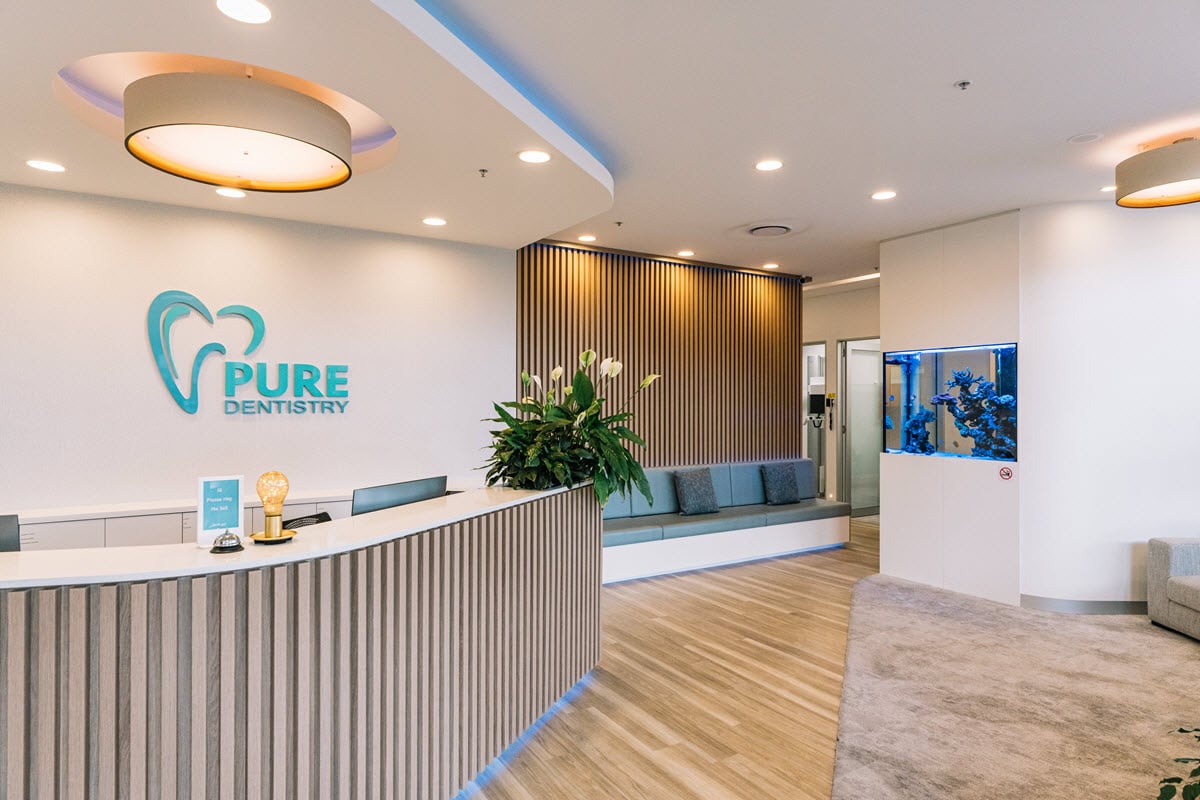
Laughing Gas (Mild/Minimal Conscious Sedation)
Have you ever heard of a simple trick to feel calm during a dental treatment? Enter the world of laughing gas. Its fancy name is nitrous oxide, but many know it as the gentle helper in sedation dentistry. Nitrous oxide is perfect for those with dental anxiety but don’t want anything too heavy.
Now, how does laughing gas work? At most dental clinics, this inhalation sedation is super easy to administer. The dentist will place a small mask over your nose; all you must do is breathe in. As you take in the nitrous oxide sedation, you’ll begin to feel a bit dreamy. But the cool part? You remain conscious. You’re awake, aware, but oh-so-relaxed. It’s like floating in a bubble of calm.
For our nervous children and in Paediatric Dentistry, laughing gas is a game-changer. They can still respond to the kids’ dentist and let them know how they feel during the treatment. And once it’s all done? That bubbly feeling goes away almost instantly. You’ll return to your usual self in no time, ready to carry on with your day. Read more about the use of happy gas in kids’ dental treatment here.
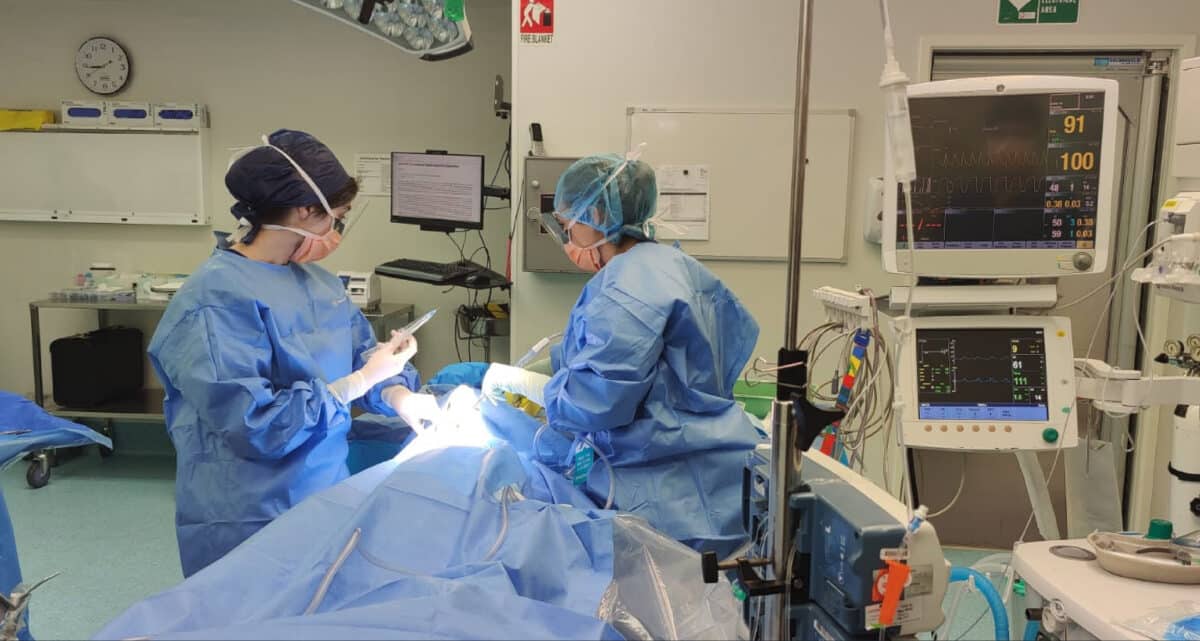
Sleep Dentistry (Deep Sedation)
There’s sleep dentistry for those who hear “dentist” and imagine climbing Everest without gear. It’s the pinnacle of pain relief in the dental world, ensuring a pain-free experience for even the most complex treatments. Let’s dive in.
Sometimes referred to as general anaesthesia dentistry, sleep dentistry isn’t just about being super relaxed; it’s about being entirely unaware of the procedure. It’s a whole different ballgame from other sedation methods. Typically done in a hospital setting, general anaesthetic ensures that patients with severe dental phobias can still get the necessary care.
How does it work? Experienced dentists work closely with specialist anaesthetists. They administer a combination of sedative and pain-relieving drugs that make you completely unconscious. Think about dental procedures that are being done in Brisbane, like wisdom teeth removal or root canal treatment – daunting for many, but with sleep dentistry, you’re not there at all.
Here’s the technical bit, but don’t worry, it’s simple: While you’re under, your vital signs are continually monitored to ensure your safety throughout the entire duration. It makes it perfect for complex procedures that might otherwise require multiple visits or for those looking to manage pain and severe anxiety all in one go.
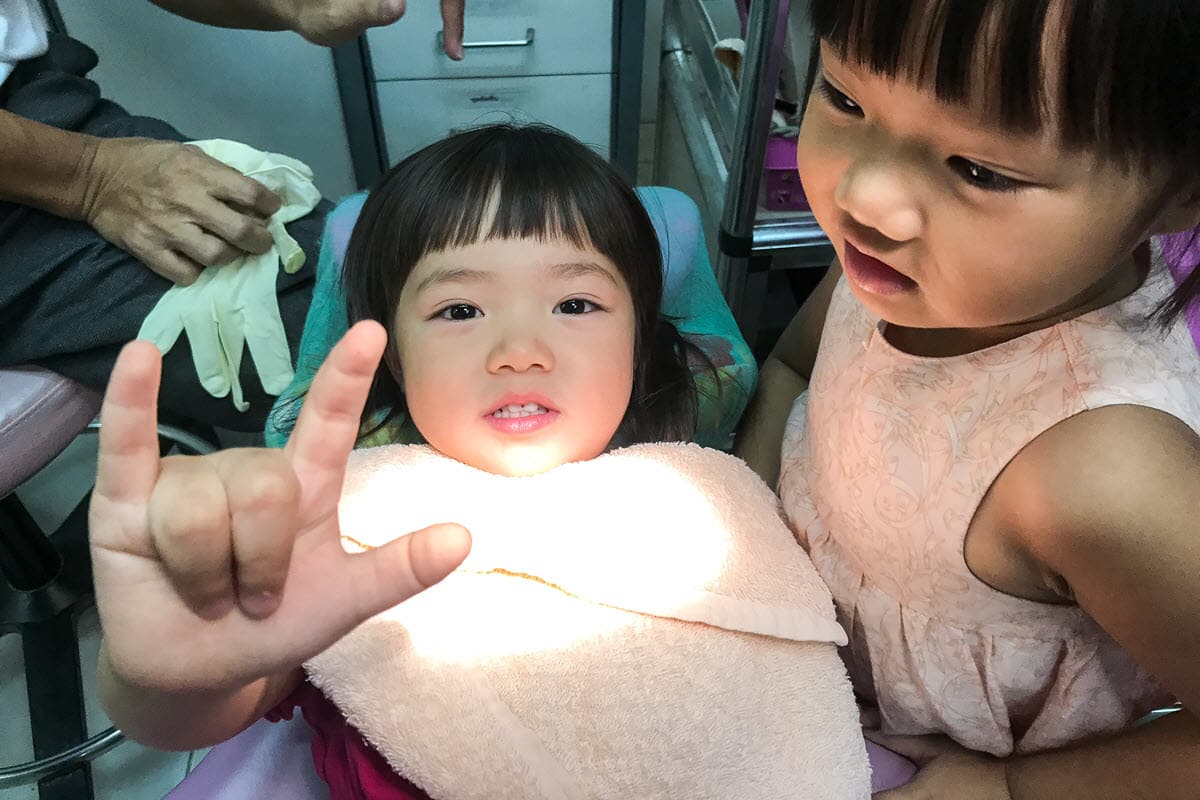
IV Sedation (Twilight Sedation)
Imagine floating through clouds, not fully asleep but wrapped in a blanket of dreamy, calming relaxation. That’s the magic of IV sedation in sedation dentistry in Brisbane. Unlike the mild effect of laughing gas or oral pills, IV sedation takes dental treatments to a whole new level of comfort.
Let’s address a common myth: You aren’t fully knocked out with IV sedation. Instead, it’s a form of conscious sedation. You’re in a tranquil, dream-like state but can still respond if your dentist asks a question or gives a little instruction. It’s like being in that sweet spot right before deep sleep, where you can still hear someone calling your name but feel incredibly relaxed.
The magic behind this is the intravenous sedation method. The sedative is directly introduced into your bloodstream and works super fast. And the best part? During your dental treatment, the level of sedation can be adjusted. So, if you’re undergoing extensive treatments or battling severe dental phobia, this method ensures your dental work is pain-free and smooth.
IV sedation is a game-changer for those with deep-rooted dental fears, reducing dental anxiety to a mere whisper. Remember, after IV sedation treatment, you’ll be quite groggy. So, ensure a responsible adult is there to take you home safely.
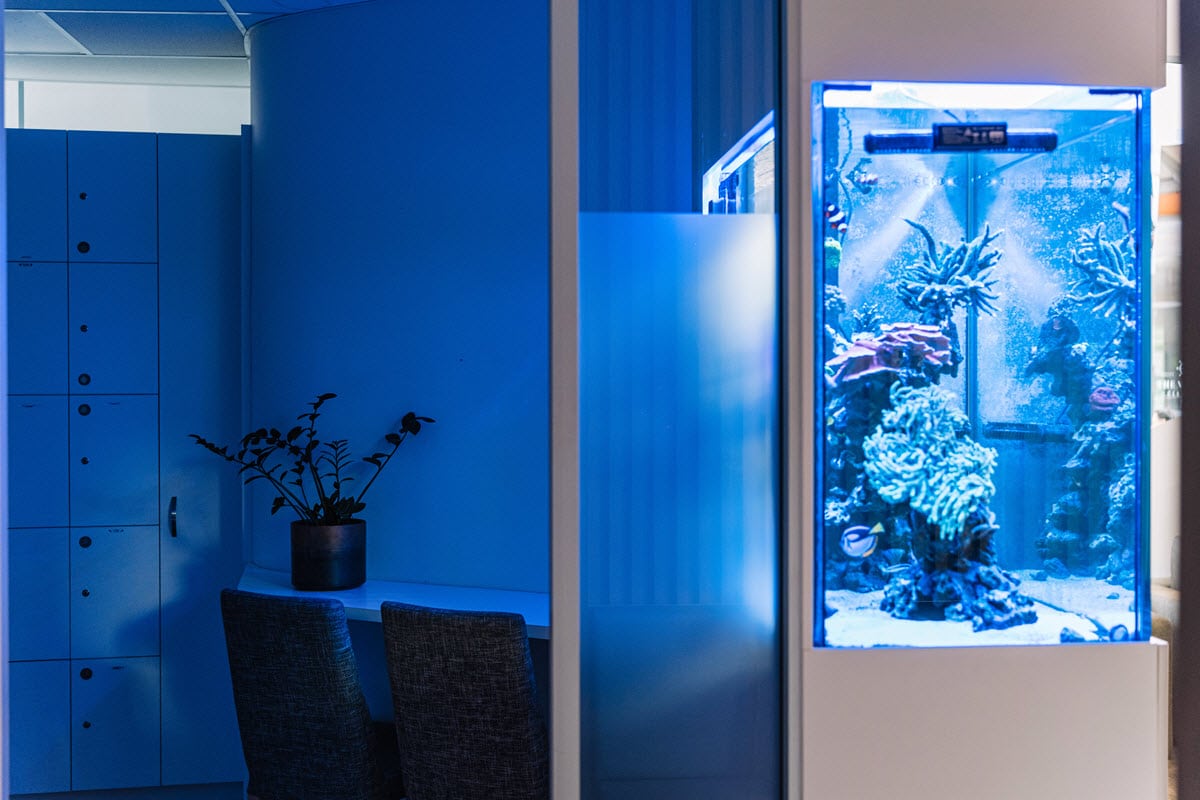
Factors Determining the Level of Sedation
When you walk into a dental clinic, the kind of sedation you’ll receive isn’t just drawn out of a hat. At any reputable dental practice, it’s determined by several factors. Here’s a breakdown:
Patient Anxiety Level
Some folks breeze into their dentist’s chair as if they’re meeting an old friend, while others might need a little more than laughing gas to calm their nerves. Laughing gas, commonly called happy gas, can be ideal for mild anxiety. But something stronger like IV sedation might be for deep-seated dental fears.
Nature of Dental Treatments
A simple cleaning? Maybe just a local anaesthetic will do. However, a general anaesthetic might be necessary for more extensive surgical procedures to ensure comfort and a pain-free experience.
Duration of the Dental Treatment
No one wants to be on laughing gas for hours on end. The length of your treatment might influence whether you receive a quick dose of happy gas or a more extended form of sedation.
Patient’s Overall Health
Being medically fit is crucial. An experienced dentist must know if you have any conditions that might influence your response to certain sedation types.
Age of the Patient
Just like with any medication, age can affect how one reacts. It’s why dentists might adjust the sedation type and dosage accordingly. See our Brisbane Paediatric Dentistry page for dental treatments tailored to children’s comfort.
Past Medical History
Had a bad reaction to a local anaesthetic, general anaesthetic, or other sedation types in the past? Your dentist needs to know. Previous experiences and medical history are essential in determining the right sedation.
Patient Preference
At the end of the day, some patients have a clear preference. Some might request laughing gas just because it makes them feel more at ease, while others might opt for IV sedation to be in a deeper state of relaxation.
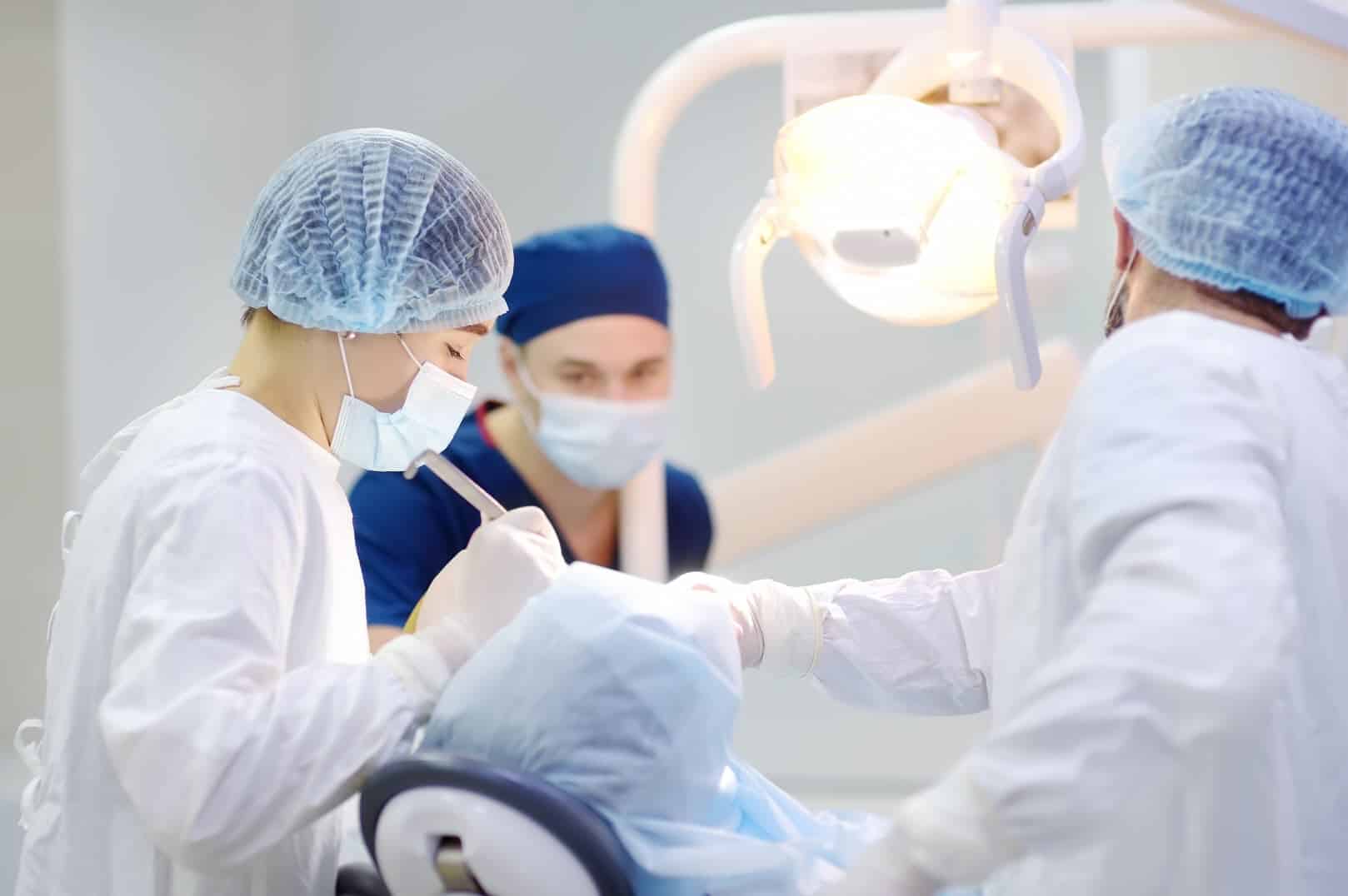
Safety and Considerations in Sedation Dentistry
Sedation dentistry has made significant strides in recent years, offering patients unparalleled comfort during their dental visits. However, it’s not as simple as walking in and opting for laughing gas or sleep dentistry. There are vital safety measures and considerations every patient should be aware of.
Thorough Consultation: Before any treatment involving sedation, it’s essential to have an in-depth consultation with your dentist. This step ensures you’re a suitable candidate for sedation and that all potential risks are discussed.
Role of Professionals: Not every dentist can administer sedation. Anaesthesiologists or dentists trained explicitly in sedation play a critical role. Whether you’re looking for a touch of happy gas or a deeper level of sleep dentistry, it’s crucial to have a qualified professional overseeing the process.
Pre-procedure Guidelines: Patients might be asked to fast for a specific period before any sedation appointments. Also, since you might not be able to drive post-sedation, arranging transportation is necessary.
Post-procedure Care: Patients must be monitored for a while to ensure no adverse side effects after receiving sedation, especially with methods more potent than laughing gas. Recovery might involve some grogginess, so it’s recommended to take it easy and avoid tasks that require sharp focus.
Safety in sedation dentistry is crucial. With the right precautions and the expertise of seasoned professionals, it’s a game-changer in dental care.
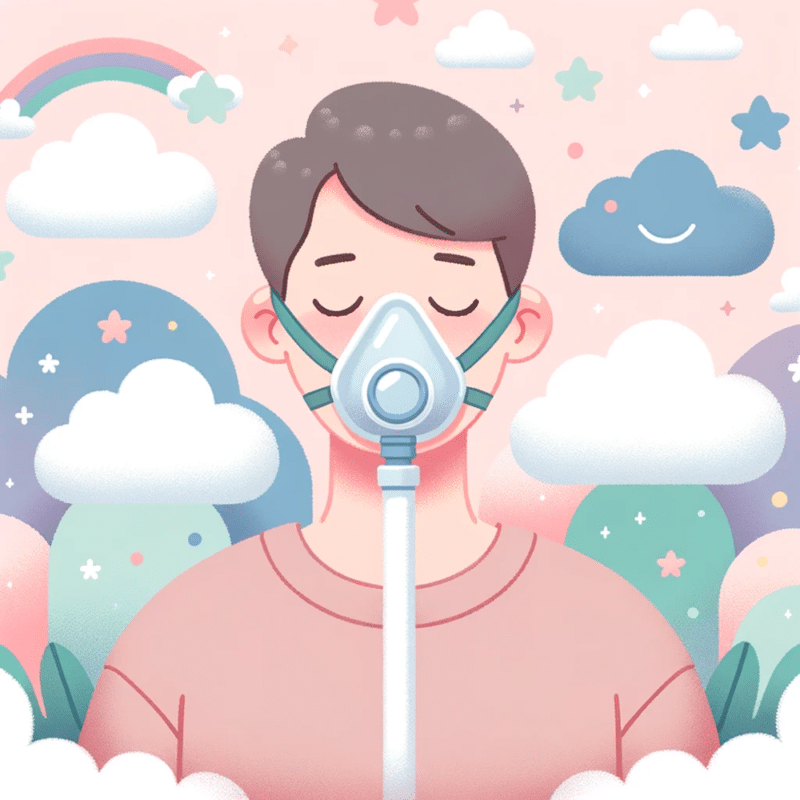
Am I a Suitable Candidate for Sedation?
Dental Anxiety: One of the most common reasons patients choose sedation. Sedation can be a game-changer if the mere thought of a dental appointment causes significant stress.
Low Pain Threshold: If dental procedures are especially painful or uncomfortable, sedation can make the experience more bearable.
Need Extensive Work: Patients looking at lengthy procedures might opt for sedation to make the process smoother.
Gag Reflex: A strong gag reflex can make dental procedures challenging. Sedation can help in reducing this reflex.
Medical Conditions: Some medical conditions, such as Parkinson’s disease or cerebral palsy, can make it difficult for patients to control movements. Sedation can help these patients stay calm and still during procedures.
Consultation is Key: Always discuss your medical history, current medications, and any previous experiences with anesthesia with your dentist. They will help determine if sedation is right for you and which type would be most appropriate.
Considerations: While many people are suitable candidates for sedation, it’s not for everyone. There are potential risks, especially if one has certain medical conditions or is taking specific medications. The elderly, pregnant women, or those with severe respiratory, cardiac, or liver conditions may face increased risks with certain sedation methods.
Always weigh the benefits against the risks.
Pure Dentistry Brisbane
At Pure Dentistry, we believe in care that stays true to its name—pure and unadulterated. Our dedicated dentists ensure every treatment is tailored to your unique needs. Don’t compromise on your oral health. For those who experience dental anxiety or prefer a more relaxed procedure, we proudly offer sleep dentistry, IV sedation, and laughing gas to ensure your comfort every step of the way.
Offer Pure Dentistry a chance to redefine your dental experience. Schedule your dental appointment with us today by calling 07 3343 4869.




































